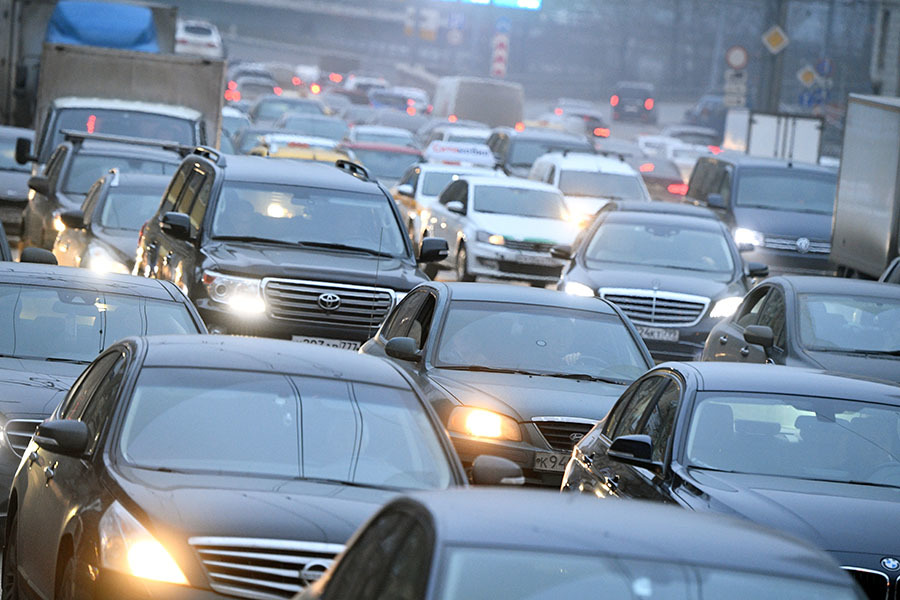The increase in the transport tax for Euro-3 cars and lower will not affect the personal cars of Russians. This was stated by Minister of Industry and Trade Denis Manturov, according to TASS.
“This initiative will not affect the personal cars of Russians. So ordinary motorists have nothing to worry about, ”he said.
Earlier, the deputy head of the department, Alexander Morozov, spoke about this initiative. According to him, the corresponding proposal was sent to the Ministry of Transport.
“In the near future (we will submit - RT .) To the Ministry of Transport the proposal from January 1, 2021 to drastically increase the base rate of the transport tax on Euro-3 cars and lower,” he said.
As later explained in the press service of the ministry, we are talking only about commercial vehicles. According to the agency, there are more than three million such people registered in Russia. The decision to raise a tax on them is explained by the environmental damage that they cause - raising the tax on these cars, the Ministry of Industry and Trade expects to stimulate sales of new, more environmentally friendly cars.
The environmental standard Euro-3 was introduced in Russia in 2008. And in 2013, it was replaced by the Euro-4 standard. They set the maximum permissible amount of harmful substances in the exhaust gases. In this regard, the initiative of the Ministry of Industry and Trade will concern cars older than seven years. Now in Russia there is an even more stringent class - Euro-5.
According to the traffic police, 10.1 million passenger cars are in total compliant with Euro-3 and lower standards, another 14.3 million have not been installed.
Currently, transport tax rates do not depend on the environmental class of the car.
- RIA News
- © Evgeny Biyatov
“The problem really exists”
Improving the environmental friendliness of transport is a really important issue that needs to be addressed, said Chairman of the Committee on Ecology and Environmental Protection Vladimir Burmatov.
“We really have a problem. In many cities, emissions from automobile transport account for a significant part of harmful emissions, in principle, into the atmosphere, ”he told RT. - Greening transport is really a very important issue. Here, it seems to me that the transfer, for example, to gas motor fuel of public transport is a very serious issue for many regions. ”
At the same time, the deputy noted that it is necessary to conduct more detailed calculations of how effective the increase in the transport tax will be and whether this will lead to the desired result.
“That is, how many new cars will appear, how much emissions will be reduced. I believe that in such sensitive issues, calculations of efficiency should first appear and only then suggestions for additional workload. You have to be very careful here, ”he said.
At the same time, in the automotive environment they believe that raising the transport tax will negatively affect the financial condition of the owners of such cars. According to Viktor Pokhmelkin, Chairman of the Russian Motorists' Movement, the cost of cars and fuel already provides a high burden on owners.
“I think that without that the load on motorists and motor vehicles is very high, given the ever-increasing cost of vehicles and the cost of fuel,” he said in an interview with RT.
At the same time, such measures will become an incentive for the development of the production of cars and their components in Russia, Roman expert Gulyaev is convinced.
“I consider the proposal of the Ministry of Industry and Trade absolutely logical. The Ministry of Industry and Trade, as an organization developing industry in Russia, is interested in making the industry produce more, so that the car factories themselves, all adjacent plants, that is, manufacturers of components, even work for selling organizations, that is, car dealers, to work. The park’s incentive measures have proven successful in all countries, ”he stressed in a conversation with RT.
“Reinforced by international practice”
In Russia, measures to reduce the number of old cars have been discussed more than once. So, in the summer of 2019, the Ministry of Transport received an offer from the State Duma to ban the operation of old cars. The department noted that they are studying this proposal.
The Ministry of Industry and Trade then said that this initiative also came to them. The ministry reminded of international restrictive practice, when the withdrawal of old cars from the fleet is due to decisions in different areas.
“With regard to a number of proposals of a restrictive nature, according to the Ministry of Industry and Trade, which is supported by international practice, the removal of old automotive vehicles from circulation should be carried out through the application of economic, technical and organizational regulation, as well as incentives for vehicle owners to purchase new ones, environmentally friendly rolling stock, ”the Ministry of Industry and Trade noted.
At the same time, measures are being discussed to stimulate sales of electric vehicles. In Moscow, at the end of November, the transport tax on cars with an electric power plant was canceled. Other support measures have already been taken in the capital - free parking and charging for owners of such cars.
In total, since 2018, the number of charges for electric vehicles in the country has grown almost three times. However, at the same time, in absolute numbers, the indicator is still small - in 2018 there were 56 of them, and it became 161.
In addition, from January 1, the recycling fee from new cars was increased. On average, the coefficient increases the growth by 110%, but this measure did not affect electric vehicles - in their regard, the rate remained unchanged.

